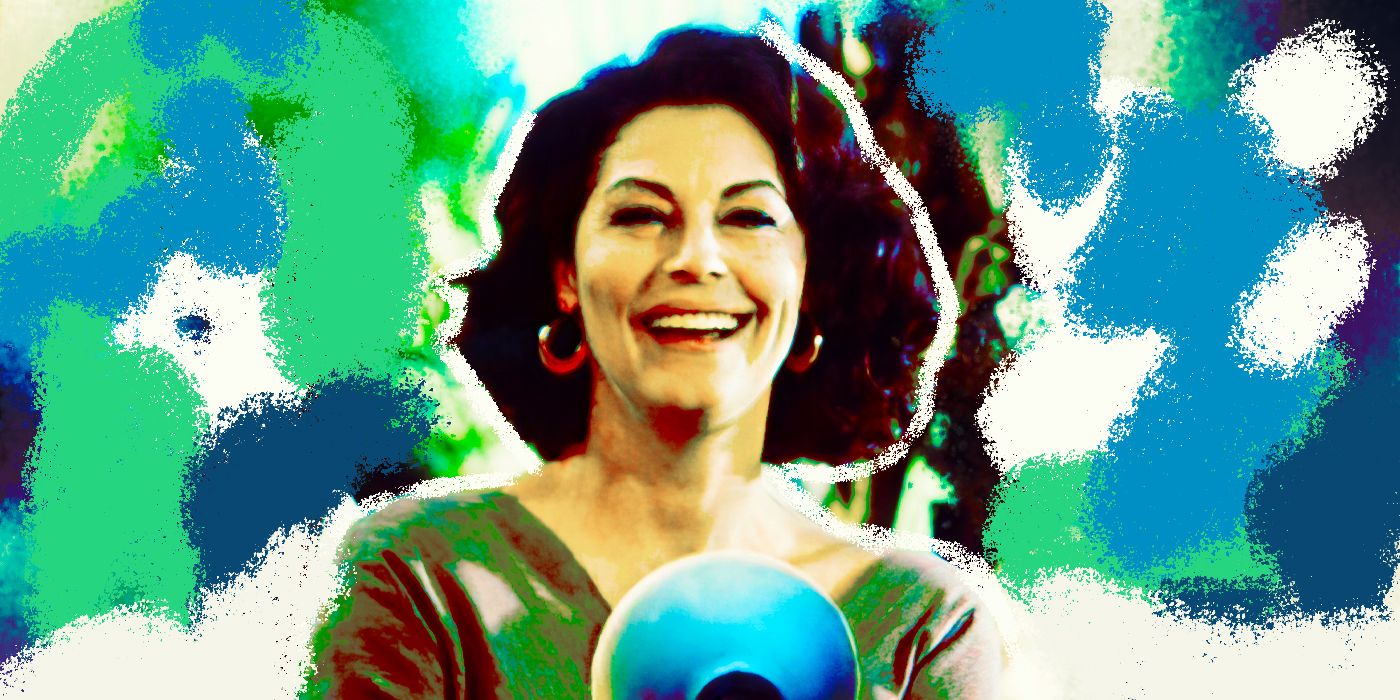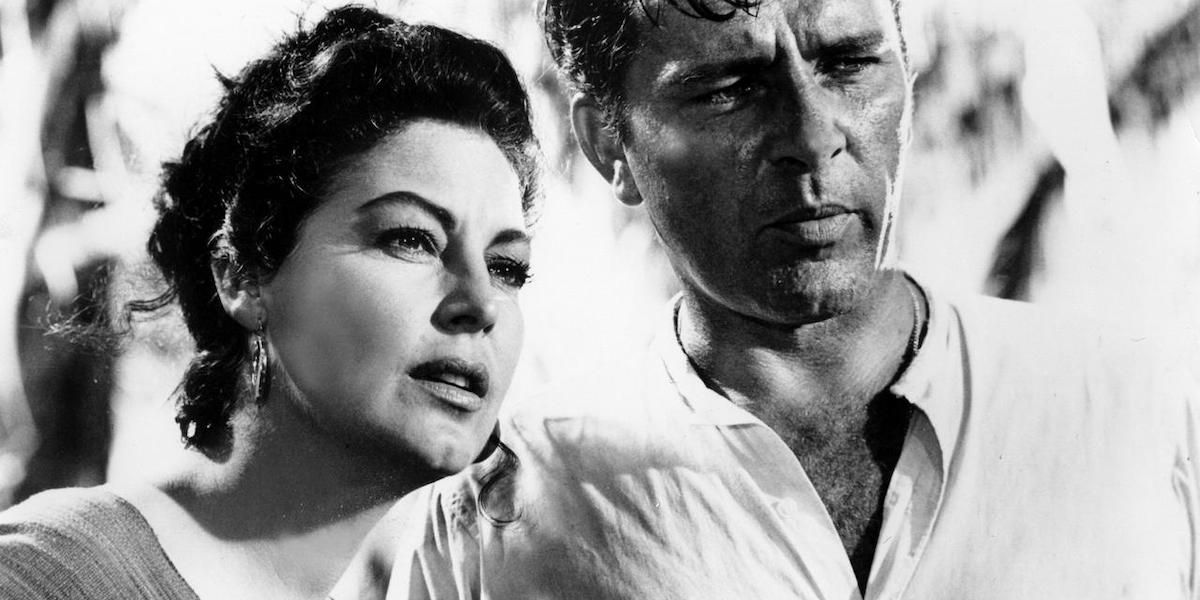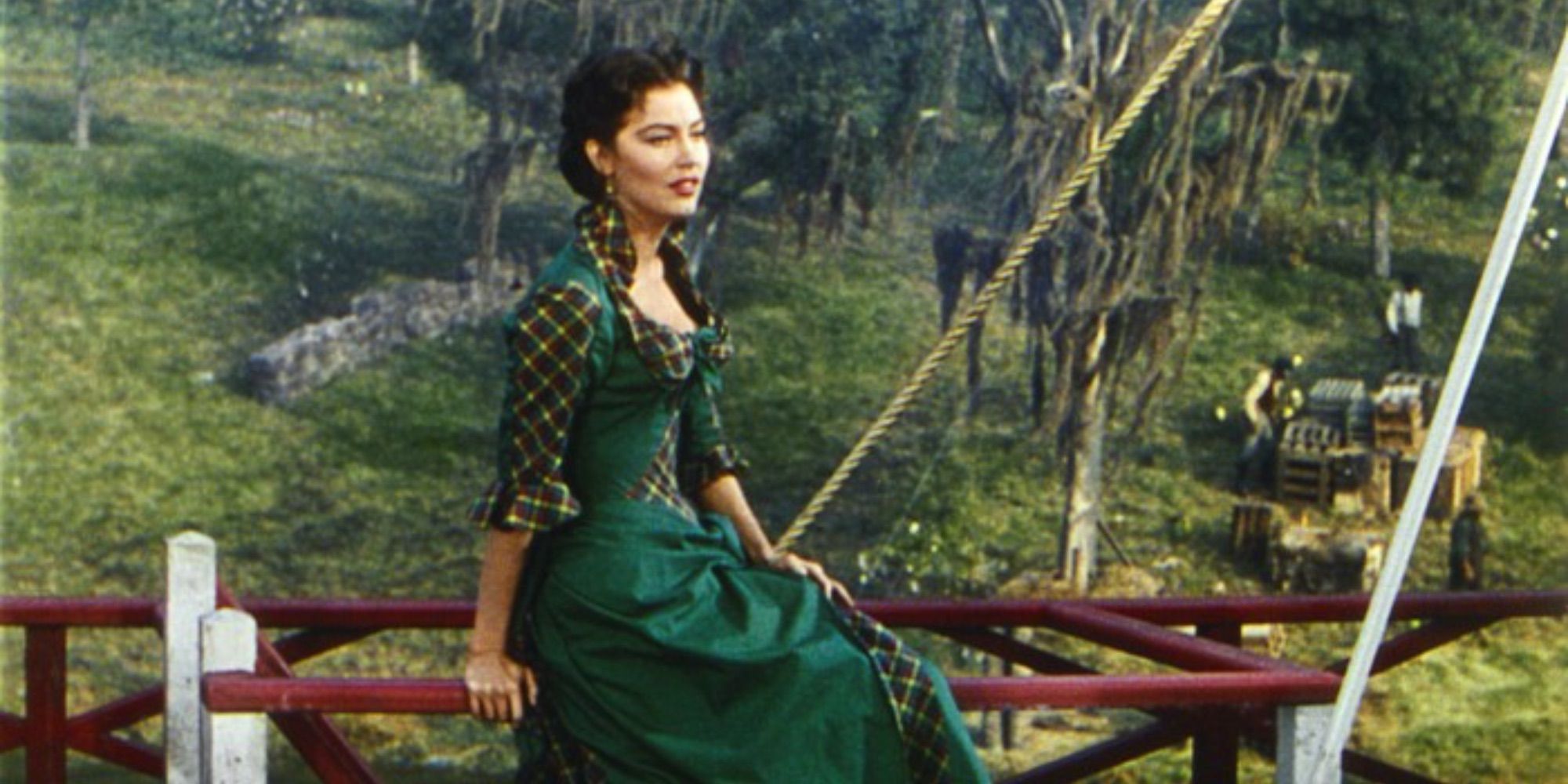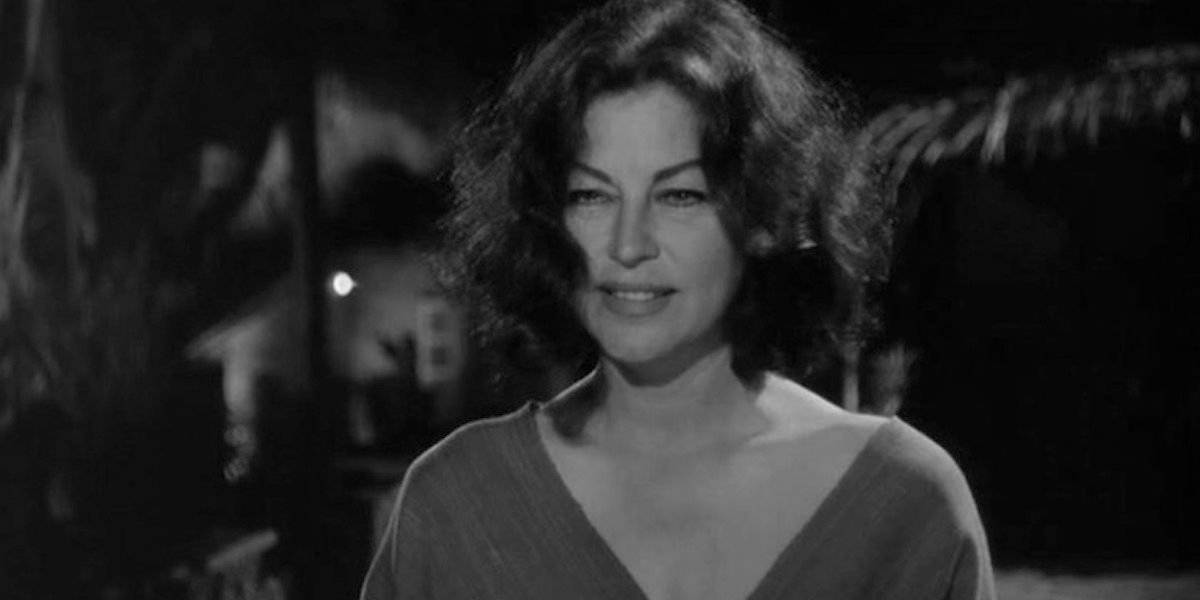Ava Gardner’s exceptional career is due as much to her straightforward southern disposition and bold personality as her acting acumen. In a time when women were often encouraged to play the demure and docile second fiddle, Gardner was a formidable force. Her unbridled nature and spirit of rebellion shows through on-screen, especially in the second half of her film career. This is most evident in one of her most memorable roles, that of Maxine Faulk in 1964's The Night of the Iguana.
Directed by famed filmmaker John Huston, the film is based on a popular play of the same name by Tennesee Williams. It stars Gardner and Richard Burton, who had just suffered through the messy release of Cleopatra a year earlier. The movie also stars Sue Lyon and Deborah Kerr, both of whom shine in their respective roles. However, it's Gardner that truly steals nearly every scene as the powerful and sensual Faulk. So many of Gardner's experiences on and off-screen leading up to that film make Maxine the perfect character for Gardner.
What Is 'The Night of the Iguana' About?
The Night of the Iguana takes place at the Mexican seaside hostel owned by Maxine Faulk. as Maxine, Ava Garner plays an independent-minded widow who revels in the freedom that comes with living such an unconventional life. The central plot of the movie follows disgraced minister T. Lawrence Shannon (Burton) who leads a tour of Baptist teachers from Texas through Mexico. He strands the tour near Faulk's hotel in order to avoid getting fired for perceived inappropriate relations with a teenage member of the tour. The rest of the film follows Shannon, Faulk, the tour members, and two other guests of the hotel as they all wrestle with their own demons, and sometimes each other.
Ava Gardner's Reluctance to Join the Cast
Initially, Ava Gardner was not eager to play the part of Maxine. In fact, she wasn't eager to be in any films at that time. According to Gardner in her autobiography Ava: My Story she says of her life in Spain in 1963 "...I was enjoying my life and minding my own business, and I wanted to go on doing so. I did not want to be in a movie at all and then the damn phone rang." On the other end of that phone was Huston. Ultimately, Gardner succumbed to Huston's cinematic advances, and she signed on to play the part of Maxine. Bette Davis had originally played the role of Maxine on Broadway, though Williams’ original script showed Maxine to be a more harsh and cold character than what Huston’s film adaptation ultimately achieved. Despite her initial misgivings, not to mention the skepticism of Tennessee Williams himself, Gardner joined the cast to start filming in Puerto Vallarta.
It's hard to image the role of Maxine in the film being played by any other actress, even Davis herself. Gardner brings so much personality and swagger to the role, that she is easily the most magnetic character in the entire film. On screen Maxine Faulk is bold, brash, confident, and tough. She is also, in many ways, Ava Gardner.
Ava Gardner's Life Wasn't Always a Hollywood Dream
So much of Gardner’s own personality ran parallel to that of Maxine's. Ava’s hard-scrabble upbringing, bold southern attitude, and personal tumult play a greater part in her success in The Night of the Iguana than any prior acting experience could have offered. Born to a poor sharecropping family in rural North Carolina in 1922, Ava was the consummate tomboy, and was observed more often than not running around her tiny town shoeless. She was self-assured and sometimes defiant, while still maintaining a warmth that always drew others to her. At 18, she signed a contract with MGM that would change her life, and her film career began in earnest.
Gardner had a number of small roles over the first few years of her contract. But in 1946, she gained the attention of critics and audiences alike for her portrayal of Kitty Collins in The Killers. What followed was two decades of legendary Hollywood ups and downs, both personally and professionally. She starred in well-received films like Showboat and Mogambo, the latter earning her an Oscar nomination. She also signed onto some less successful films like My Forbidden Past, an ill-fated film noir with Robert Mitchum, which lost the studio nearly three quarters of a million dollars.
In her personal life, by 1957 Gardner had been married and divorced three times; first to MGM golden boy Mickey Rooney, then to famed band leader Artie Shaw, and finally to legendary actor and crooner Frank Sinatra. By all accounts these relationships ranged from volatile to abusive, and it all took a toll on the fiery yet highly sensitive Gardner. All the while she was hounded by the tabloid press as the poster child for campy Hollywood gossip.
By the time she was cast as Maxine Faulk in The Night of the Iguana, Ava Gardner, for better or worse, had truly lived. It had been over twenty years since she was plucked from obscurity as a teenager and thrown to the lions (literally) at MGM. She had loved and lost many times over, and was no longer willing to bend to anyone else's will unnecessarily.
Now in her early forties, Ava Gardner knew exactly who she was; vital, powerful, and confident. That's why she was so successful in making the character of Maxine her own. She was Maxine, and vice versa. Maxine wasn’t written for a young starlet who could just get by on her looks alone. She was a modern, experienced woman, in every sense of the word.
Ava Gardner Becomes Maxine Faulk
In every one of Gardner's scenes in the film, the audience can see, hear, and most importantly, feel the life experience that Faulk brings to each moment. It's raw and believable, because Ava Gardner knows the joy and the pain of those same moments. Her performance shows true depth, and a complex understanding of exactly who her character is.
From her first moments on screen, Gardner brings Maxine to life in a way that few other actresses could have. As she walks out of the hotel, she's barefoot and unfazed by the disheveled Shannon climbing up the steps. Maxine's nonchalant confidence is a calming agent for the audience. Shannon appears manic and confused, while Maxine exudes that trademark cool that one either has or doesn't. It can't be faked, which is why Ava Gardner was the perfect actress for the role. She was an original in every way, and she brought that spirit to her performance in the film.
Even in scenes where Maxine may exercise less control over her emotions, Gardner manages to do so with righteous defiance and unapologetic intention. There may be no better example of this than a scene where Maxine, full of rage, exclaims "I'm a young woman. I'm attractive too if I can get to a decent beauty parlor!" It's a powerful scene that demonstrates what an aging actress in Hollywood must feel at times. Gardner delivers the lines with such fervor that it's obvious that she truly feels the pain of Maxine at that moment. The real magic happens when Gardner makes the audience feel that pain as well.
This is what Ava Gardner achieves throughout the entire two plus hours of The Night of the Iguana. She breaks through the surface of Maxine's blustery facade and exposes her soul, scars and all. In so doing, she shows the world her own emotional battle wounds, and the film is better for it. Not only does it make The Night of the Iguana an entertaining movie, but it makes Maxine Faulk, and by extension Ava Gardner, absolutely unforgettable.




